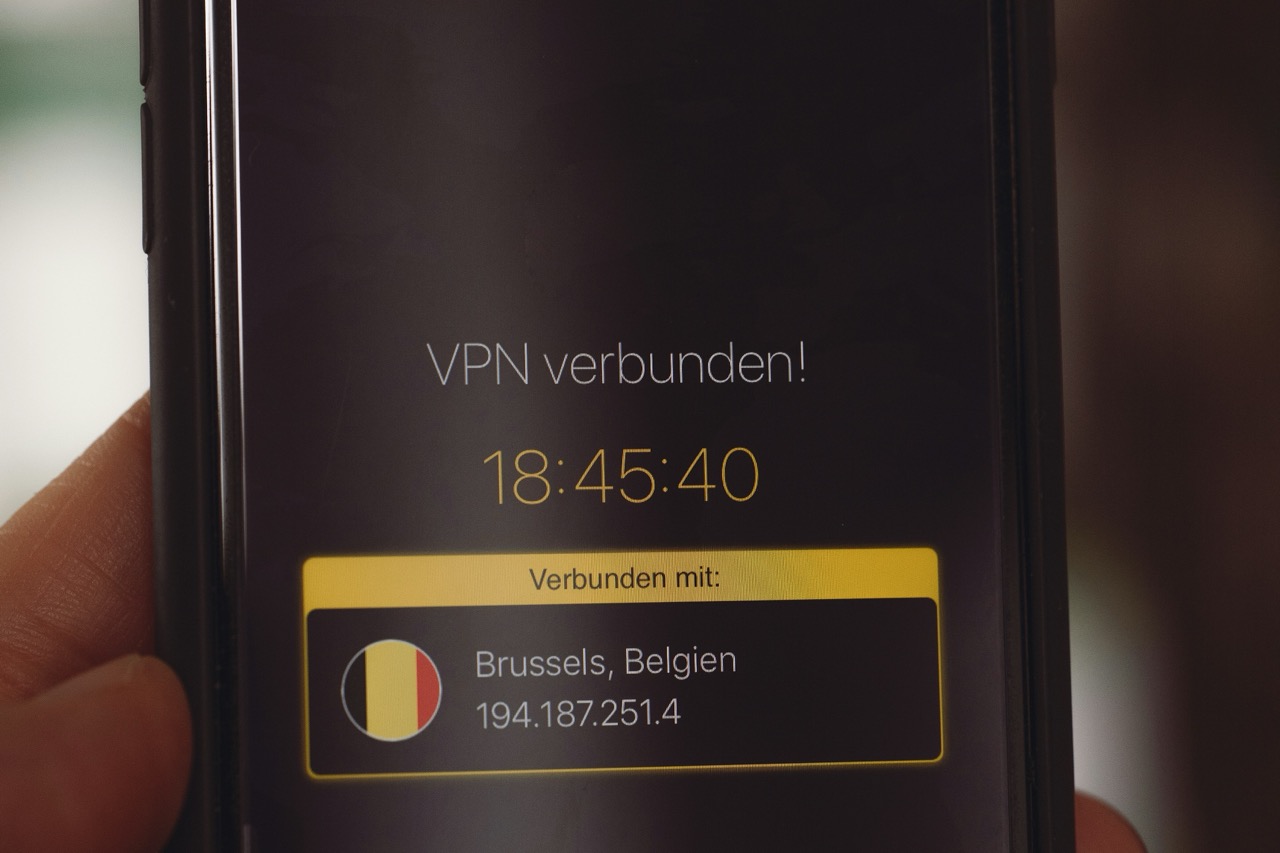In an increasingly interconnected world, expatriates often find themselves navigating a complex digital landscape. Whether for work, travel, or personal reasons, expats frequently rely on the internet for communication, accessing services, and gathering information. However, the lack of localized content, potential cyber threats, and privacy concerns can pose significant challenges. A Virtual Private Network (VPN) emerges as a crucial tool, ensuring secure browsing and enabling access to geographically restricted content. This article delves into the relevance of VPNs for expats, the essential features to look for, and a comparative analysis of the top VPN providers in the market.
Understanding the Importance of VPNs for Expats’ Security
For expatriates, maintaining online privacy and security is paramount. The exposure to public Wi-Fi networks, particularly in foreign lands, increases risks of data breaches and cyber-attacks. VPNs employ encryption protocols that protect users’ data from prying eyes, making it difficult for hackers to intercept sensitive information, such as personal details and banking credentials. Moreover, expats may find themselves in countries with strict internet censorship laws, where accessing certain websites could be illegal or restricted. A VPN helps bypass such blocks, granting unrestricted access to information and services.
Another critical aspect is the protection against government surveillance. In some countries, authorities monitor internet usage closely, raising concerns for privacy-conscious users. VPNs can mask users’ IP addresses, making it harder for governments or ISPs to track online activities. This level of anonymity is especially vital for expats who may be sharing sensitive information or opposing local views. Consequently, using a reliable VPN service can significantly enhance the online safety of expatriates, allowing them to communicate and explore without fear of repercussions.
Additionally, expats often need to access services from their home countries, such as streaming platforms, banking services, or communication tools. Many of these services use geo-blocking measures, limiting access based on the user’s location. By connecting to a VPN server in their home country, expats can circumvent these restrictions and enjoy seamless access to their preferred content. Thus, a VPN is not only a tool for security but also a gateway to maintaining connections with one’s home culture and essential services.
Key Features to Consider When Choosing a VPN Service
When selecting a VPN service, expats should prioritize several key features to ensure their online experience is both secure and efficient. Firstly, strong encryption protocols are essential; look for services that offer AES-256 bit encryption as a standard. This level of encryption is widely regarded as nearly unbreakable and provides a robust defense against cyber threats. Additionally, check for a kill switch feature, which terminates the internet connection if the VPN drops unexpectedly, preventing accidental exposure of sensitive data.
Another crucial factor is the breadth of server locations. A VPN service with a diverse array of servers across multiple countries allows expats to connect to their home country or any other location, facilitating unrestricted browsing. Furthermore, the presence of servers optimized for streaming can enhance the viewing experience when accessing geo-restricted content from platforms like Netflix, Hulu, or BBC iPlayer. Therefore, a comprehensive server network is a valuable asset for expats seeking flexibility in their online activities.
Finally, user-friendly interface and multi-device compatibility are important. Expats may require VPN access on various devices such as smartphones, tablets, and laptops. A VPN provider that supports simultaneous connections on multiple devices ensures convenience and flexibility, allowing users to secure all their gadgets without hassle. Moreover, intuitive applications simplify the setup process, making it easier for less tech-savvy users to navigate and configure their VPN settings effectively.
Top VPN Providers: A Comparative Analysis for Expats
Several VPN providers stand out in the crowded market, each offering unique benefits tailored to the needs of expats. NordVPN is frequently cited as one of the top choices due to its extensive network of over 5,000 servers worldwide, robust security features, and user-friendly interface. It also supports P2P sharing and has specialized servers for streaming, making it ideal for expats looking to access content from various regions securely.
ExpressVPN is another strong contender, renowned for its exceptional speed and reliability. With a network of servers located in 94 countries, it offers extensive geographical coverage, allowing expats to bypass regional restrictions effortlessly. Additionally, ExpressVPN’s commitment to privacy, backed by a no-logs policy, ensures that users’ activities remain confidential. This combination of speed, security, and versatility makes ExpressVPN a preferred choice for frequent travelers and expatriates.
Lastly, Surfshark has gained popularity for its unlimited simultaneous connections and cost-effective pricing. This service provides strong encryption, a kill switch, and an ad-blocking feature, enhancing the overall browsing experience. Moreover, Surfshark’s no-logs policy and CleanWeb feature ensure that users can browse without being tracked or disrupted by advertisements. Its affordability coupled with solid performance makes Surfshark an attractive option for budget-conscious expats seeking a reliable VPN solution.
Evaluating Speed and Performance of VPN Solutions
When using a VPN, speed and performance are critical metrics that directly affect the user experience. VPNs can sometimes slow down internet connections due to encryption processes and the distance between the user and the server. When evaluating potential VPN providers, it is essential to consider their speed performance across different servers and locations. Independent tests and user reviews can provide insights into how well a VPN performs under various conditions.
Another aspect to consider is the VPN’s ability to maintain stable connections. Frequent disconnections not only disrupt browsing but can also expose sensitive data if the VPN lacks a robust kill switch feature. Look for VPNs that have a reputation for reliability, as this can significantly enhance the overall user experience, particularly for expats who may rely on consistent connectivity for work or communication with family and friends back home.
Lastly, latency and download speeds are vital for activities like streaming, gaming, or video conferencing—common uses for expats. Many VPNs offer specialized servers designed for these activities, which can help minimize lag and buffering. When researching VPN options, prioritize those that have been recognized for high performance and low latency, ensuring that you can enjoy a seamless online experience while abroad.
User Privacy Policies: What Expats Need to Know
For expats, understanding user privacy policies is crucial when selecting a VPN service. Not all VPNs are created equal, and some may log user data or share it with third parties, undermining the very purpose of using a VPN in the first place. It is imperative to read the privacy policy thoroughly to determine how the provider handles user data. Look for terms such as "no-logs policy," which indicates that the VPN does not keep track of user activities or connection logs.
Moreover, expats should be wary of VPNs based in countries with stringent data retention laws or surveillance alliances, such as the Five Eyes countries (United States, United Kingdom, Canada, Australia, and New Zealand). VPNs operating in these jurisdictions may be compelled to hand over user data to government authorities. Instead, look for providers based in privacy-friendly countries, like Switzerland or Panama, which offer greater protection from government surveillance.
Additionally, consider the transparency and accountability of the VPN provider. Some companies undergo independent audits to verify their privacy claims, offering an added layer of trustworthiness. As an expat, selecting a VPN with a transparent privacy policy and a proven track record of protecting user privacy is vital for ensuring both security and peace of mind while navigating the internet abroad.
Setting Up and Configuring Your VPN for Optimal Use
Setting up a VPN can vary based on the service provider and the type of device being used, but generally, the process is straightforward. After choosing a VPN provider, begin by downloading and installing the application on your device. Most reputable VPNs offer software for various platforms, including Windows, macOS, Android, and iOS, making it accessible for different users. Follow the installation prompts, and once completed, you will typically need to log in using your account credentials.
After logging in, it’s essential to configure the VPN settings for optimal performance. Many VPNs come with default settings that may not be tailored for your specific needs. For example, enabling the kill switch feature ensures that your internet connection is automatically severed if the VPN connection drops unexpectedly, preserving your privacy. Additionally, consider adjusting the encryption level if your VPN provides such an option, balancing security with performance based on your online activities.
Finally, test your VPN connection before relying on it for critical tasks. Use online speed tests to gauge the connection speed and check for potential IP leaks or DNS leaks, which can expose your real IP address. Many VPNs offer built-in tools for leak protection; ensure these features are enabled. Regularly updating the VPN application and keeping abreast of changes in privacy policies or features will also enhance your overall experience and security as an expatriate.
In conclusion, a reliable VPN is an invaluable tool for expatriates seeking to protect their online presence while navigating the digital landscape of a foreign country. By understanding the importance of VPNs, considering essential features, and evaluating various providers, expats can make informed choices tailored to their unique needs. As privacy and speed become increasingly critical in our interconnected world, leveraging the right VPN service ensures that expatriates can connect, communicate, and explore safely and freely. Ultimately, a well-chosen VPN can significantly enhance an expat’s experience, providing peace of mind and unrestricted access to the digital world.










